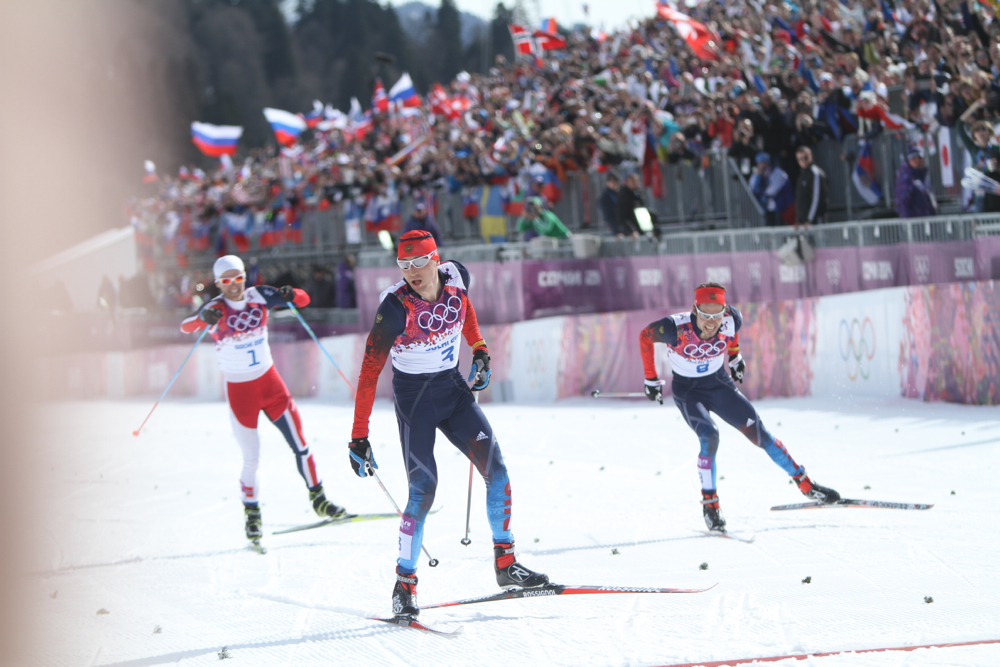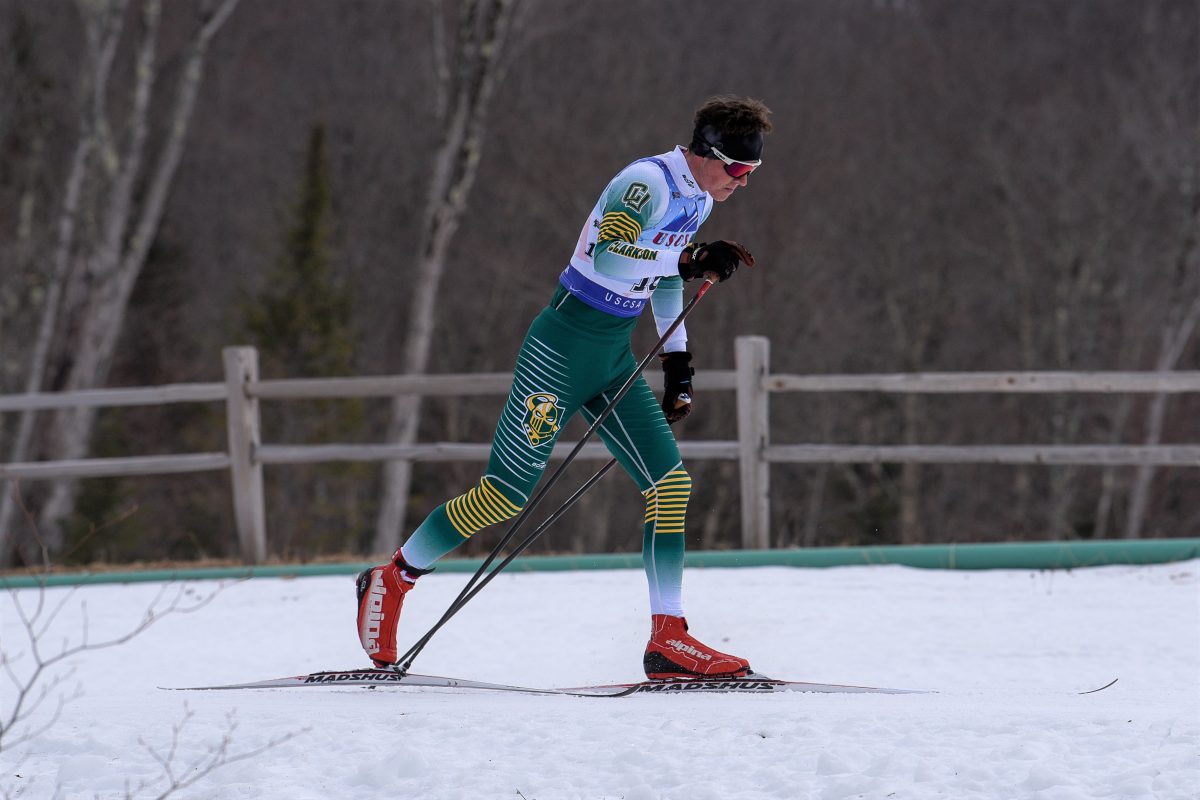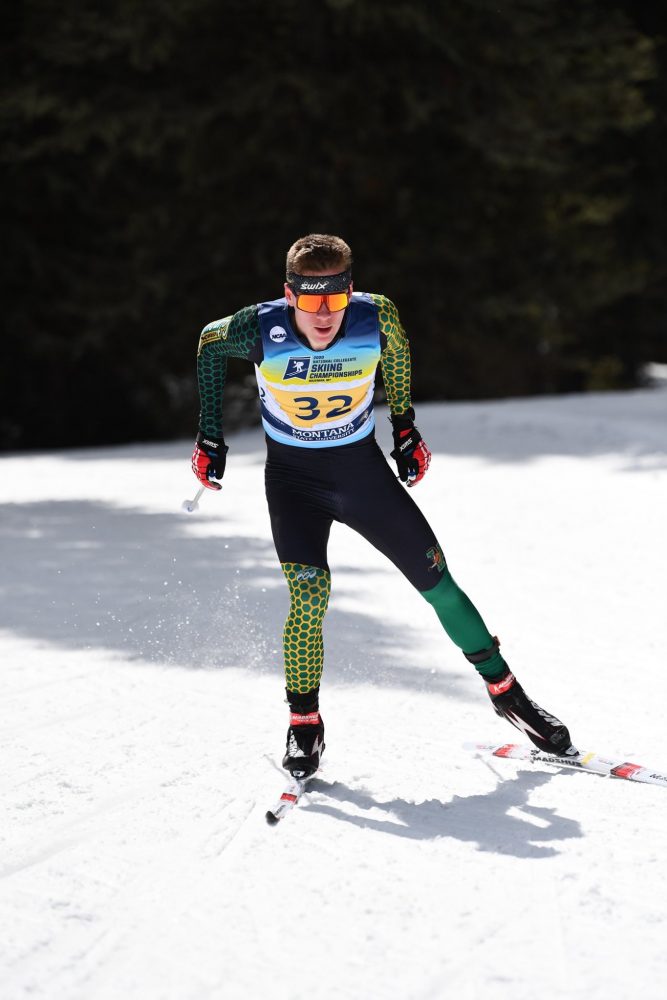
This spring, the Court of Arbitration for Sport (CAS) ruled that the International Ski Federation (FIS) had until Oct. 31 to bring specific charges against six Russian cross-country skiers, or else the athletes’ provisional suspensions would be lifted and they would be allowed to return to international competition.
That date is drawing near, and although there has been no external sign of progress, action might come soon.
At an International Olympic Committee (IOC) meeting in Lima, Peru, last month, Denis Oswald, the Swiss lawyer heading that organizations Disciplinary Commission, told Reuters that the IOC may begin adjudicating the first cases under investigation from the 2014 Olympics in October.
Christof Wieschemann, the German lawyer hired by Sochi gold medalist Alexander Legkov, believes he will hear about his client’s case soon.
“We expect that our case will be the first one which will be brought to Oswald commission hearing,” he wrote in an email to FasterSkier on Friday. “[We] hope it will be clarified until 31 October. But even if not, the athletes are free.”
On the opposite side, FIS Secretary General Sarah Lewis wrote in an email that FIS is awaiting any information from the IOC commission and will act as soon as possible once it receives a directive.
“FIS will not undertake any actions before the findings of the IOC Disciplinary Commission are communicated, which are scheduled to follow in October,” Lewis wrote. “Thereafter FIS will act with any aspects that come within its competence. There is regular communication and coordination between the respective legal experts… We would not be able to enlighten you any further on more precise timings of the IOC Disciplinary Commission and you will have to address this question with the IOC.”
This underscores some awkward dynamics about the case. Because the alleged doping took place at the Olympics, the IOC has jurisdiction to address the cases.
Thus, FIS is waiting for the IOC. But the IOC is operating slowly and very much on a different timeline. Many observers have noted that the IOC is only motivated to adjudicate the cases before the start of the 2018 Olympics in PyeongChang, South Korea, in February.
Athletes, obviously, would like the case resolved much more quickly – ideally, long ago. Legkov and the other five skiers have already been suspended for nine months.
Meanwhile, FIS is now facing a deadline mandated by CAS, but is not directly in charge of the investigation themselves.
“The CAS panel left no doubt that the time limit to complete the investigations and to provide the result is not expandable,” Wieschemann wrote. “A longer term would not be reasonable and appropriate regarding the interests of the athletes. The problem is that the investigations are conducted by IOC. They have no problem with the deadline because their ‘deadline’ is the beginning of the Olympic Games, not the season of FIS competitions. However, I suppose that all will do their very best to bring the cases to their end before the deadline expires.”
The CAS Award
Although the CAS decision was announced at the end of May, CAS has still not posted its arbitration award on its website, and so Wieschemann did instead.
Many are taking the decision to mean that Legkov will be free to compete on Nov. 1, and at the upcoming Olympics in South Korea as well.
But with 30 days left in October, that’s not a sure bet.
First of all, CAS did not disagree that it was appropriate for FIS to issue Legkov a provisional suspension in the first case.
It rejected many of Legkov’s arguments about the shortcomings of the McLaren report, which implicated him in a sample-swapping scheme at the 2014 Olympics. One of Legkov’s urine sample bottles was shown to be tampered with, and his name appeared in documents related to the planning of systematic doping.
While this wasn’t enough to prove an anti-doping rule violation, CAS wrote in the decision (available here), it was certainly enough to indicate a “reasonable possibility” of a rule violation, which is all that is required for a provisional suspension while further investigations proceed.
“The Panel concludes that the evidence establishes a ‘reasonable possibility’ of an [anti-doping rule violation] in the Appellant’s case,” the decision reads. “It further considers that the Appellant has not demonstrated with satisfaction the fulfillment of criteria necessary to lift the suspension, though the Panel has decided that it should be modified.”
As that modification, CAS decided that the length of a provisional suspension should not be indefinite. It gave FIS until Oct. 31 to bring an anti-doping rule violation against Legkov – and if they don’t, his provisional suspension will be lifted.
If Legkov’s case is not addressed by the Oswald commission before Oct. 31, but is brought up later with new evidence, FIS can then start over and apply a new provisional suspension. The federation just can’t extend the current suspension based on the current evidence.
“The Panel appreciates the unusual magnitude and complexity of cases awaiting Mr. Oswald’s attention,” the decision noted. “It cannot however endorse an indefinite and indeterminable suspension as proportionate… the Panel deems it appropriate and just that the current provisional suspension expire after 31 October 2017, at which time it will be for FIS to consider whether or not to seek a further suspension justified by new developments.”
So – it’s all down to the IOC, and if they find some speed (and new evidence) in their investigation.
International Politics
Others, too, are impatient.
“If you chose to cheat at the Olympic level, and put banned substances into your blood so you can gain an advantage, I really don’t see any place for that person in the Olympic movement,” U.S. biathlete Lowell Bailey told the Associated Press.
And the athletes are not the only ones frustrated by the IOC’s slow progress.
“A lot of progress has been made, but we’re not there yet,” a Dutch IOC member, told the Associated Press. “I understand it takes a lot of time, but we cannot have this discussion just before the PyeongChang Games. It must be clear months before.”
The United States Anti-Doping Agency, the Canadian Center for Ethics in Sport, and 15 other national anti-doping agencies have asked the IOC to ban Russia from the upcoming Olympics.
“The failure to expeditiously investigate individual Russian athlete doping poses a clear and present danger for clean athletes worldwide and at the 2018 Winter Games,” leaders of the organizations, collectively called the National Anti-Doping Organization and including such countries as France, Germany, Norway, Sweden, Japan, Australia, and the United Kingdom, wrote. “We have serious doubts that the 2018 Games will be clean due to the incomplete investigation of massive evidence of individual doping by Russians athletes at the 2014 Sochi Olympic Games and given the inadequate testing evidence of Russian athletes over the past four years.”
“When you have our International Olympic Committee commissioning additional studies, questioning its own regulatory body, WADA, you wonder, really, who’s controlling all of this? What’s the motivation there?” U.S. Ski and Snowboard CEO Tiger Shaw told the Associated Press. “The investigation has been done. It’s conclusive.”
Meanwhile, Russian President Vladimir Putin denied that any state-sponsored doping had occurred at the Olympics in Russia.
“In Russia we never had, don’t have, and I hope won’t have a state-sponsored doping program,” he reportedly said on Russian television. “On the contrary, there will only be a fight against doping.”
Several days later, the Russian government issued a warrant for the arrest of Grigory Rodchenkov, the former director of the Moscow anti-doping laboratory who actually helped athletes cheat before turning whistleblower and fleeing the country.
“Russia has refused to accept responsibility,” Rodchenkov recently wrote in an op-ed in The New York Times. “My former boss, Vitaly Mutko, a deputy prime minister and former minister of sport, has repeatedly denied knowledge of my activities as director of the Moscow Anti-Doping Center, where I oversaw Russia’s doping program with help from several agents of the Federal Security Bureau (formerly the K.G.B.), and many government officials.”
Chelsea Little
Chelsea Little is FasterSkier's Editor-At-Large. A former racer at Ford Sayre, Dartmouth College and the Craftsbury Green Racing Project, she is a PhD candidate in aquatic ecology in the @Altermatt_lab at Eawag, the Swiss Federal Institute of Aquatic Science and Technology in Zurich, Switzerland. You can follow her on twitter @ChelskiLittle.



